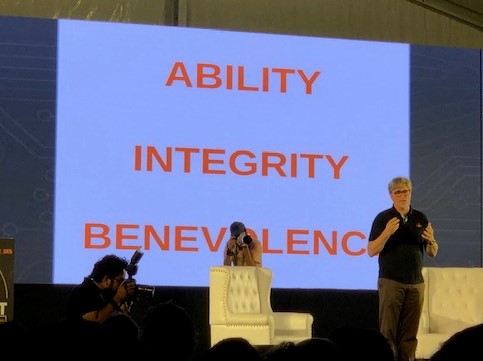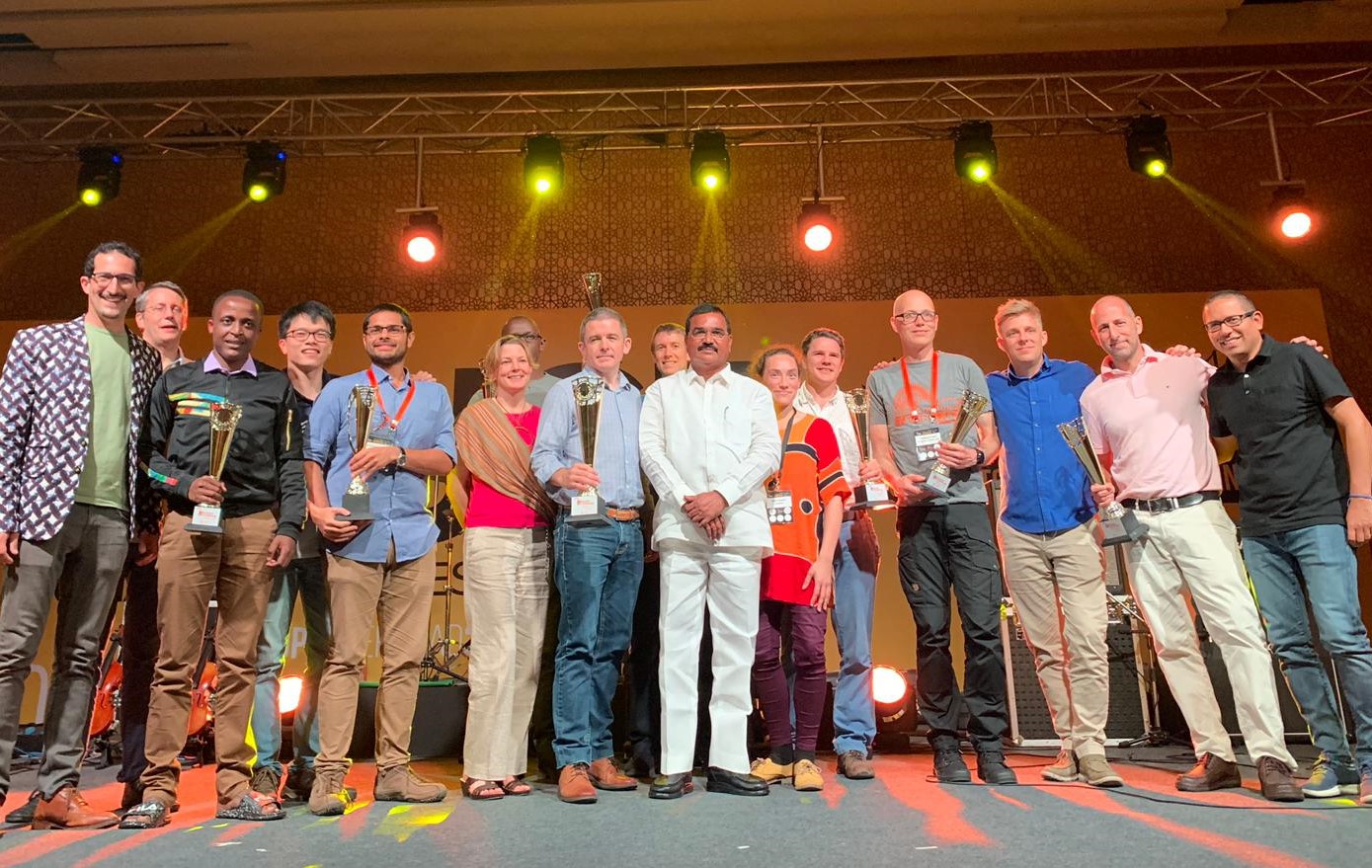Let us know what type of content you'd like to see more of. Fill out our three question survey.
Part I: Big Data in Agriculture Conference Download: Building Trust and Fueling Innovation
Oct 31, 2019
As a data enthusiast with a budding curiosity in digital agriculture, I was excited to attend the recent 2019 CGIAR Big Data in Agriculture Convention in Hyderabad, India. The event brought together attendees from around the globe to connect over the theme of Trust: humans, machines, and ecosystems. The CGIAR Big Data Platform aims to “use big data approaches to solve agriculture development problems faster, better, and at greater scale than before.” The platform does this by connecting CGIAR-affiliated researchers from around the globe with development practitioners and ag-tech providers.
Not only did I have the rare opportunity to engage with super smart scientist-types who, unlike me, have job titles like “plant geneticist” and “mycology and plant pathology specialist,” but I also was compelled to consider the definition and role of trust in the application of data and technology to building resilient global food security.
Trust is Key for Leveraging Big Data and Tech
To kick off the convention, Brian King, CGIAR Big Data Platform coordinator, cited a study to support the idea that we are experiencing a global crisis in trust. He proceeded to discuss various definitions of trust and what it means for people working at the intersection of data, innovation, and agriculture in emerging economies. Brian suggested that trust is a combination of ability, integrity, and benevolence.

Brian King, big data platform coordinator, gives opening remarks during the 2019 CGIAR Big Data in Agriculture Convention.
Similarly, the keynote speaker, Jayesh Ranjan, IT Secretary, State of Telangana, echoed Brian’s sentiments, saying that we need transparency, ethics, integrity, and values to uncover how to use large amounts of data to reveal critical insights.
As the conference unfolded, I was repeatedly reminded of the importance of building trust at all levels and with all actors. For example, one panel discussed barriers to collective action in agriculture research for development and during a workshop on human-centered design for ethical artificial intelligence (AI), I practiced ways to apply user-experience design to calibrate trust levels.
Partnerships Enable Data-Driven Innovation
In addition to panels and workshops, I was compelled by how the convention showcased the importance of partnerships, trust building, and the potential of big data in digital agriculture through its Inspire Challenge. The Inspire Challenge seeks to source new solutions for digital agriculture in developing economies. It challenges CGIAR research organizations to partner with industry players to develop projects that leverage CGIAR data to solve intractable challenges at scale. Below are some of the winning innovations:
-
Hungry cities: Inclusive food markets in Africa: proposal to analyze five years of commercial crop data in Nairobi to gain insight on food systems serving low-income urban consumers and support data-driven policy engagement, improved business decisions, and further research to support nutrition for low-income consumers.
-
Real-time East Africa live groundwater use database: proposal to minimize information gaps by turning a network of solar pumps into internet of things devices, which will be linked to an open, online water information platform. The system will be able to provide real-time data on energy use, irrigation area, and water withdrawal.
-
Pest and disease monitoring by using AI (scale-up grant): aims to help smallholder farmers by providing farm-level advice that leverages the power of AI, advanced sensor technology, and crowdsourcing.
-
Using Commercial Microwave Links (CML) to estimate rainfalls (scale-up grant): while conventional rainfall monitoring techniques have various shortcomings, this project leverages the superior accuracy of CML technology to help design better rainfall-based index insurance in Kenya.

Inspire Challenge winners at the closing celebration during the 2019 CGIAR Big Data in Agriculture Convention.
During the convention’s closing, grants exceeding a total of $1 million were awarded to help eight projects find a foothold and path to scale. With trust-building as a foundational element, the Inspire Challenge exemplified a recurring theme: big data in agriculture represents an unprecedented opportunity to discover novel ways to reduce hunger and poverty by pairing science and research with big data platforms.
Stay tuned! This is not the last in a series discussing takeaways from the convention. Next we will debrief on the panel we hosted at the convention discussing trust and cybersecurity considerations for digital agriculture. The panel featured diverse perspectives from private sector actors, donors, and implementing partners.